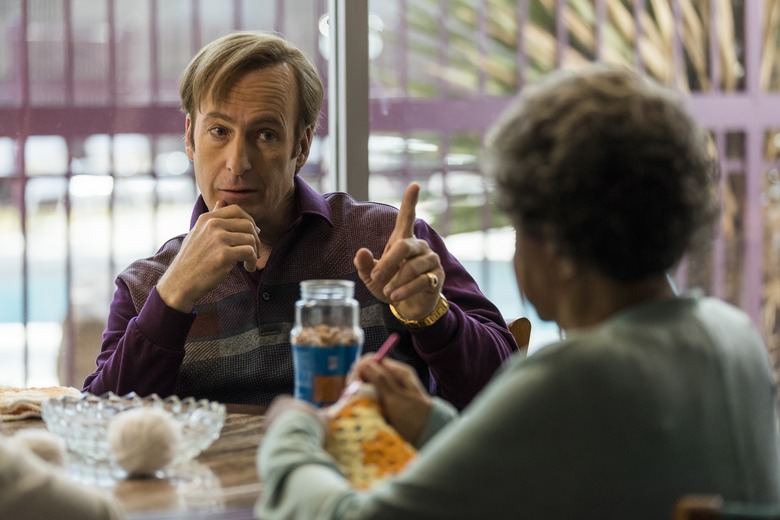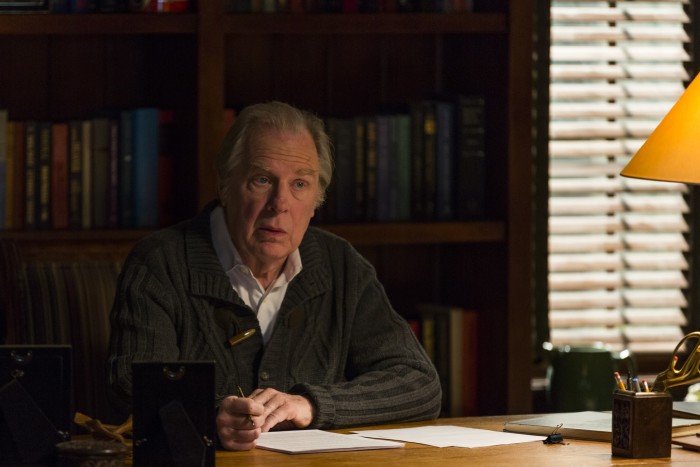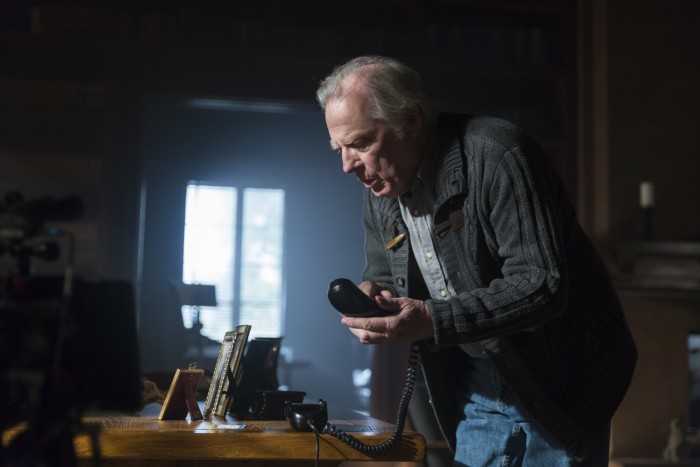'Better Call Saul' Season Finale Review: Who Came Out On Top In 'Lantern'?
(Every week, we're going to kick off discussion about Better Call Saul season 3 by answering one simple question: who came out on top when the credits rolled?)
In its season finale, "Lantern," the slow burn of Better Call Saul becomes a conflagration. It's a stunning, bleak episode, with each thread hammering home the problem that's plagued the characters from the very beginning: It's not business. It's personal.
On Top This Week: Nacho
Of every plan that's set into motion, it's only Nacho's (Michael Mando) that actually comes off clean. Relatively speaking, anyway. Hector (Mark Margolis) has already started to reach into Nacho's father's shop in order to start moving his drugs through, but Don Eladio has other ideas. He wants the product to keep coming in via Gus' (Giancarlo Esposito) trucks. It's just business, but Hector can't see it that way. To him, it's intensely personal. Like Chuck's (Michael McKean) current stew with HHM, Hector feels that his pride is on the line. He'd rather take a chance and risk the thing that he helped build than allow a change that makes him less of a part of it. As he rages against Gus, he works himself into such a furor that — as he hasn't been taking the proper medication — he keels over. But he's not dead, and we already know that he's far from out of the picture.
You Can Choose Your Friends
Kim (Rhea Seehorn), meanwhile, is recovering after having driven off the road. The accident — and the reasons for it, namely Kim's trying to help cover the cost of the office — sees a shift in her relationship with Jimmy (Bob Odenkirk). She still loves him, but something's changed. Instead of pursuing the Gatwood case, she lets it go, choosing to take a jaunt to Blockbuster instead, and watching To Kill A Mockingbird as she convalesces. That scene is particularly notable in a show that generally doesn't use a score; her decision is backed by some of the only music in the season thus far.
But You Can’t Choose Your Family
When Kim says that she'd wanted to be Atticus Finch while growing up, Jimmy says that that'd always been Chuck's field. To his credit (but only a little, given how, like his brother, he assumed that a very personal damage would be so easily reparable), he puts the situation with Irene and Sandpiper right, though the first flickers of his Saul self have already been illuminated (one of the women asks, "How do you trust someone who bends any way the wind is blowing?") . He also does right by Kim, giving up the office (and Francesca), as he knows it's impractical and also the motivating factor behind how hard she'd been pushing herself. When they leave the office, it's a bittersweet parting. The office — and that one painted wall — symbolized a certain part of their lives together, but it seems like they might be able to move onto something better. Jimmy has shown himself to only look out for himself when there's trouble; the sole exception to that rule — now more than ever — is Kim. She keeps him good. Unfortunately, only time will tell how long that'll last.
The Conversation
As previously mentioned, Chuck is going through a similar dilemma, and though it's on a smaller scale — he's hardly a cartel boss — the sense of tragedy is much sharper, and much more cutting. His fall has been swift and personally catastrophic, and again, it's largely been due to the fact that he has been acting with his head and not his heart, without realizing that the kind of waters he's been swimming through are very personal indeed. To start with, there's the threat he's made against Howard (Patrick Fabian) to sue the company that he helped build instead of taking Howard's suggestion that he take a step back. Chuck's quick to say that he'll forget all of it if Howard will just shake his hand, but the damage has already been done. Unlike Jimmy, Howard doesn't have any hesitation in speaking his mind. He tells Chuck that he's letting his pride come first, and then tells Chuck that he's paying him out — out of his own pocket. This cutting of ties is final. He's applauded as he leaves HHM, but the smile he wears flickers back and forth into an expression that suggests he's on the verge of tears. The law — always so precious to him — is lost, now.
The second loss of the night comes when Jimmy arrives to express his regret at how things played out. There's a terrible irony in how personally Chuck takes it despite how levelheaded he pretends to be, telling Jimmy that all he does is hurt people (without acknowledging his own part in the self-fulfilling prophecy). He goes so far as to say that he doesn't doubt that Jimmy's contrition is sincere, but that he ought to skip it since he'll fall back on the same bad habits and collateral damage. But it's what he says next that's worst: "I don't want to hurt your feelings, but the truth is, you've never mattered all that much to me." Jimmy leaves, wordless, and the very last of Chuck's madness starts to run its course.
"Lantern" spends five full, unbroken minutes watching Chuck deconstruct and then destroy his house as he relapses, looking for a source of electricity that doesn't seem to exist. He calls for an electrician, and he calls for his doctor, but neither is immediately available to him, so he breaks more and more as he tries to solve the problem himself. As he does, the score kicks in once again, a jazz cacophony reminiscent of Francis Ford Coppola's The Conversation. It works in setting a sense of unease, like the itch under Chuck's skin. At the end of it all, there's debris everywhere, and then there's Chuck, wrapped in a space blanket and kicking a table at the edge of which sits a lantern. Every shot in the episode — even his exit from HHM, surrounded by people — has only emphasized just how much he's isolated himself, and the final shots are the nail in the proverbial coffin. The sound of the lantern falling is never heard; there's just the slow rising of the flames as seen through a window of the house.
It's crushing, not least as a bookend to the episode's opener, which sees a young Chuck and Jimmy camped out in a little tent. Chuck assuages Jimmy's worries about the story he's reading him — he cares, he always has — telling him everything will be alright as the camera slowly pulls in on the lantern illuminating their little corner. Of course, we know that just the opposite is true. Saul Goodman isn't a story born from a happy ending.



